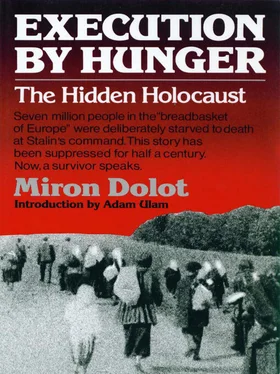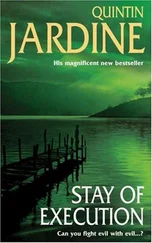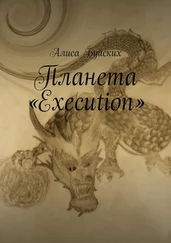Without losing much time, we went to Boris’s house. He also had not returned from the village jail, but had been transferred to the county center, and no one had seen him since. His wife, Khymka, was living alone with their two children. We frequently visited her, helping the family as much as we could. Lately, during the heavy snowstorms, we had lost all contact with them.
When we reached the front of Khymka’s house, we noticed a dark object protruding from underneath the snow. It was Khymka. Her body was completely frozen and covered with snow. We rushed into the house, anticipating the worst about her children: we were right. On the sleeping bench lay the corpse of Khymka’s eldest son, Trokhym. His hands were folded across his chest, his eyes were closed, and his frozen body was covered with an overcoat. At his head was a saucer with the remnants of a candle. Trokhym must have died before his mother. Then, in order to try and save the life of her other child, Khymka apparently left the house in search of help. But, too weakened by hunger, she collapsed a few steps in front of her house, and died in the snow.
We also found her youngest child, a boy of about eight years of age, in a bed. He was well-covered with several pieces of old clothing and miraculously still alive! He lay there totally exhausted by hunger and too weak to move. His body had stiffened and he was apparently half-frozen.
We had to act immediately to try to save the glimmer of life still in this young boy. There was no time for contemplation and emotions. We brought Khymka’s body back into the house and laid it alongside the body of her starved eldest son. It became clear to us that we had to take the youngest boy home with us, if we wanted to keep him alive, for his own house was freezing with not a trace of fuel for heating or food for survival. We carefully laid him on a sled and brought him home with us to revive him and care for him. Mother put him in bed, and told us that with God’s help, he might recover.
She then sent us with a sled to the widow’s house to bring her and her crippled daughter back with us if they were still alive. They lived close by, and it didn’t take us long to reach her house.
The widow Shevchenko and her crippled daughter Lida were also victims of government policy. A few years earlier, her husband had clashed with a Party representative when the collectivization scheme was being instituted. The representative had come to our village to organize the collective farm, and during a heated argument, Shevchenko had dared to call him “a stupid parrot!” That was his end. He was accused of assailing the dignity of the Communist Party, and he was sent to the north for five years of “corrective labor.” After a year or so, his wife received an anonymous letter telling her that her husband had died while digging the Baltic Sea-White Sea Canal. His widow now lived all alone with their daughter, who had been crippled from birth and needed constant attention. Widow Shevchenko had twice as difficult a task as the other villagers in providing food and other necessities for the two of them. Being tied down at home by the daily care of her handicapped daughter, she could not go to work. She could not get any official help either, since she was the wife of an arrested “enemy of the people.” She became a beggar, completely dependent upon the goodwill of her fellow villagers. When the whole village was struck by the famine, her fate was sealed.
We found her house on a hill not far from ours, completely snowbound, with the front door blocked by the snow.
We had a hard time clearing it away, and when we finally opened the door, we found the poor widow dead, just as we had feared, lying on the threshold halfway in the entrance hall. We carried her body into the living room and laid it on a bench. We found her daughter Lida, lying on a sleeping bench wrapped in many layers of rags but still alive. We carefully laid her on our sledge and rushed her back to our house.
At home, Mother was still occupied with Khymka’s young son. She was rubbing his body with snow, and there was also something cooking for him on the stove.
When we brought Lida indoors, Mother began ministering to her needs, and we took over the care of the young boy. After making them as warm and comfortable as we could, we tried to feed them porridge and some homemade herb tea prepared by Mother, but our efforts to force some food and warm drink into them were all in vain. Except for their slow and spasmodic breathing, they didn’t show any other signs of life, lying there completely motionless. When night fell, we witnessed their horrible death throes. At midnight, Lida died and the young boy followed shortly after.
Now we found ourselves in a peculiar situation. We had two corpses of people not related to us in our house. We could not keep them like that in our house too long, and burying them in the cemetery involved certain risks.
It was dangerous to show sympathy to starving villagers, particularly to people who, like this boy and girl, were looked upon by government officials as “enemies of the people.” Trying to save the lives of these two young people came as natural to us as trying to save our own lives, but the Communist Party looked upon such an act as high treason. Nevertheless, come what may, we decided to bury their bodies properly in the cemetery.
The next morning, Mykola and I loaded the bodies on our sledge, covered them over, and started toward the village center where the cemetery was located. It was very hard for us to pull the sledge with such a heavy load; we had very little strength for such a task, especially in the deep snow and freezing cold. Moving along the main road, we saw a few more corpses; some of whom we recognized as the remains of neighbors. There were also strangers among them who had probably come from other villages in search of food. The fact that all the corpses were covered with heavy snow suggested to us that they had been lying on the road for quite some time.
As we came closer to the village center, we saw a pair of horses pulling a sleigh and galloping toward us. We knew that such a luxury was only afforded Party and government officials. The road was narrowed by the high snowdrifts, so we could not give way. The rearing horses stopped almost in front of us. At first we heard only swearing coming from the sleigh; then we were commanded to move aside. While we were trying to do this, our heavily-loaded sledge became firmly stuck in the snow. As we vainly attempted to push and pull our sledge out, we inadvertently uncovered our cargo. The attention of the officials was instantly riveted to our sledge. They dismounted and came over to us for a closer look.
There were two of them and both were strangers to us. They were warmly dressed and looked well fed and prosperous, as in olden days. One of them with a fur coat, stepped forward and demanded to know what we were pulling in our sledge.
“You see what we’re pulling!” I replied, pointing to the corpses. The other stranger was eyeing us with curiosity.
“Who were they, and how did they die?” the man in the fur coat continued his interrogation.
What a superfluous and ridiculous question! I casually answered that the corpses were those of our neighbors. Then, instead of explaining to him the cause of their deaths, I pointed out that one could see many corpses on the road, and that there were many more dead and dying in their homes. He apparently must have been very displeased with my answer because he asked me angrily who we were and stepped closer to us.
“You certainly don’t want to tell me that the entire population of the village died, or is about to die out, do you?” he continued, raising his voice. Then hurling more insults and curses at us, he took a notebook out of his pocket and wrote down our names.
Читать дальше












